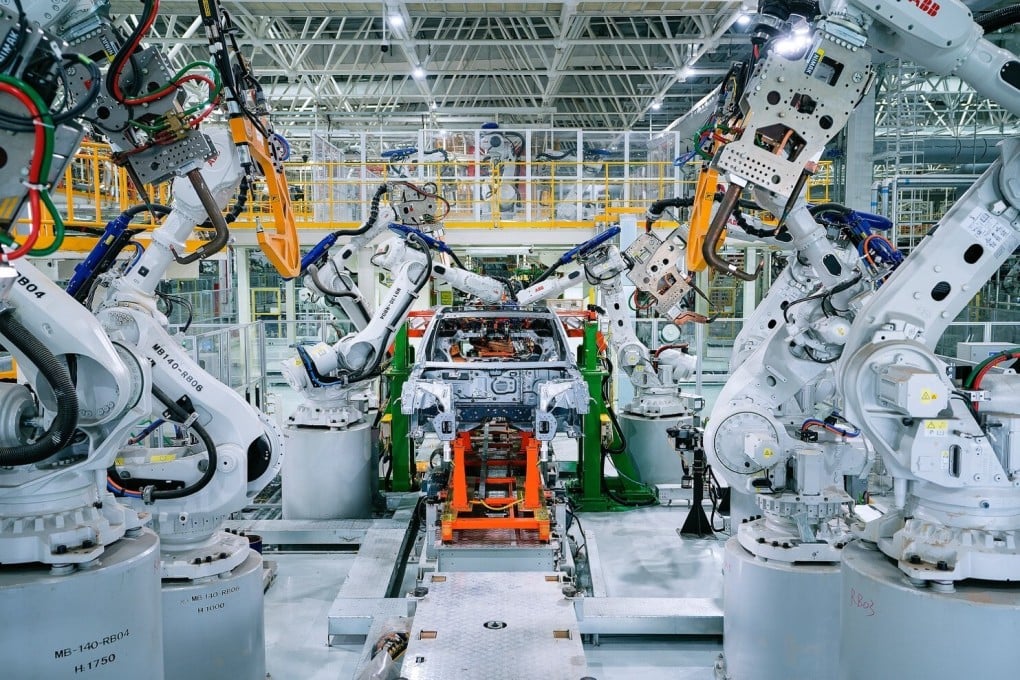China’s factories must be ‘armed with automation’, as coronavirus gives boost to machines in manufacturing
- Trade war with US saw many companies relocate outside China, but orders came back last year as Chinese production rapidly rebounded from the coronavirus
- Beijing has splashed out huge subsidies on the robotics industry, seeing it as a key element in its push to upgrade the nation’s manufacturing industry

The US-China trade war weakened demand for automation on Chinese assembly lines from 2018-19, but a shortage of manpower during the pandemic reversed that trend last year, and analysts expect manufacturers to further embrace robots in 2021.
“The impact of the pandemic on the global industrial supply chain has been a major stimulus, forcing a huge number of orders to return to China,” said Peng Biao, an analyst with Fashionprint.com, which monitors the fashion industry. “Last year was like a roller-coaster ride for Chinese manufacturers, from huge drops in revenue at the beginning of the year to a huge rebound later that year. And now there is a growing shortage of manpower everywhere, so medium- and large-sized companies are now, again, having to step up the replacement [of workers] with robots.
“For example, among garment printers that survived last year, it can be said that 80 per cent of them have plans this year to invest in automation. Otherwise, it will be difficult to survive in the future, because they would be eaten up by the soaring cost of labour and materials.”
But now, with China being the only major economy to fully resume production amid the coronavirus, domestic manufacturers and overseas buyers are re-evaluating the need for relocation and the importance of maintaining production capacity in China, according to Luo Jun, CEO of the International Robotics and Intelligent Equipment Industry Alliance, a government-backed think tank on smart manufacturing.
